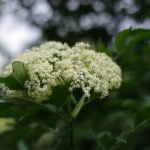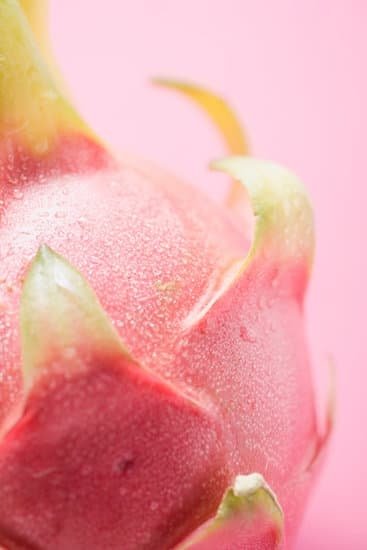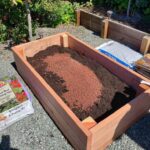In South Africa, where space can be limited, small gardens offer the perfect opportunity to showcase creativity and innovation in landscaping. For those seeking inspiration for their own small garden oasis, there are a plethora of small garden ideas available that cater to the unique climate and landscape of South Africa. From incorporating indigenous plants to utilizing space efficiently, there are endless possibilities to transform even the tiniest outdoor areas into lush green retreats.
When it comes to designing small gardens in South Africa, it’s essential to consider the diverse range of plants that thrive in the country’s various climates. By selecting the best plants for small gardens, such as succulents, fynbos species, and drought-resistant varieties, homeowners can create low-maintenance yet stunning outdoor spaces. These plants not only add beauty but also contribute to the conservation of water – a crucial aspect of sustainable gardening practices in South Africa.
In this article, we’ll explore creative vertical gardening ideas for small spaces, tips for efficient layout designs, water-wise solutions tailored to South African conditions, and DIY projects that can easily enhance any small garden. With a focus on embracing the beauty of small gardens in South Africa, this guide aims to inspire readers to make the most out of their limited outdoor areas while celebrating the uniqueness of local landscapes and plant species.
Best Plants for Small Gardens in South Africa
Native Succulents
One of the best plant choices for small gardens in South Africa are native succulents. These plants are not only water-wise, perfect for the dry climate in many regions of South Africa, but they also add an interesting and unique look to your garden. Some popular native succulents to consider include Aloe Vera, Echeveria, and Crassula.
Fragrant Herbs
For a sensory experience in your small garden, consider planting fragrant herbs like lavender, rosemary, and thyme. These herbs not only add a beautiful aroma to your outdoor space but can also be used in cooking and even natural remedies. Plus, they are generally low maintenance and do well in both pots and small garden beds.
Colorful Indigenous Flowers
Adding pops of color to your small garden can make it feel vibrant and lively. Consider planting indigenous flowers like Cape Daisy (Osteospermum), Bird of Paradise (Strelitzia reginae), or African Lily (Agapanthus). These flowers not only bring beauty to your garden but also attract local pollinators like bees and butterflies. Remember to choose flowers that bloom at different times throughout the year to ensure a continuous display of color in your small garden.
By incorporating these plants into your small garden design, you can create a beautiful and diverse outdoor space that reflects the unique flora of South Africa while also being practical for the region’s climate and size constraints.
Creative Vertical Gardening Ideas for Small Spaces
Vertical gardening is a fantastic solution for those with limited space in their gardens, especially in urban areas or small yards. In South Africa, where many homeowners are looking for innovative ways to make the most out of their small garden spaces, vertical gardening can truly transform a cramped area into a lush oasis. Here are some creative ideas to maximize vertical space in your South African small garden:
- Use hanging baskets or pots to grow herbs, flowers, or even vegetables. Hang them on walls, fences, or pergolas to add a touch of greenery.
- Install trellises or arbor structures to train climbers like jasmine, bougainvillea, or climbing roses upwards. This not only adds height but also creates a visually appealing feature in your garden.
- Consider a living wall by using vertical planters or pallets to create a vibrant wall of plants. This can serve as both a decorative element and an efficient use of space.
In addition to these ideas, incorporating elements such as plant shelves, espalier fruit trees against walls, or even repurposing old ladders as plant stands can all contribute to making the most out of your vertical space. By thinking outside the box and looking up rather than out, small gardens in South Africa can be transformed into beautiful and functional outdoor spaces.
For those wanting to add a touch of greenery indoors as well, consider installing indoor vertical gardens with cascading plants like string of pearls or spider plants. These natural features not only purify the air but also bring life and freshness into your home. With some creativity and planning, small gardens ideas South Africa can be brought to life through innovative vertical gardening techniques that maximize every inch of available space.
Utilizing Space Efficiently
When designing a small garden in South Africa, it is essential to make the most out of the limited space available. By utilizing space efficiently, you can create a beautiful and functional outdoor oasis that maximizes every inch of your garden. Here are some tips for optimizing the layout of your small garden:
- Choose multi-functional furniture: Selecting furniture pieces that serve more than one purpose can help save space in a small garden. Look for benches with storage compartments, tables that fold down when not in use, or chairs that can be stacked.
- Embrace vertical gardening: Vertical gardening is a great way to add greenery to your small garden without taking up valuable ground space. Consider installing trellises, hanging planters, or vertical gardens on walls to maximize planting areas.
- Create designated zones: Divide your small garden into different zones based on their functions, such as dining, lounging, and gardening. This will help create organization and flow within the limited space.
Incorporating these tips into your small garden design can help create an efficient layout that makes the most out of the available space. Remember that every corner counts in a small garden and with thoughtful planning, you can transform even the tiniest outdoor area into a vibrant and inviting retreat.
Additionally, consider incorporating elements like raised beds, container gardening, and hanging planters to further optimize space utilization. These features not only add visual interest to your small garden but also allow for more planting opportunities in restricted areas. Experimenting with different layouts and arrangements can help you discover creative solutions for maximizing space in your South African small garden.
Water-Wise Gardening Solutions for South African Small Gardens
Water scarcity is a pressing issue in South Africa, making water-wise gardening solutions critical for small garden owners in the country. By incorporating drought-tolerant plants and efficient irrigation methods, you can create a beautiful and sustainable garden that thrives even during dry spells. In this section, we will explore some practical ideas to help you design a water-wise garden that conserves this precious resource while still adding charm to your outdoor space.
Choosing Drought-Tolerant Plants
One of the key components of water-wise gardening in South Africa is selecting plants that can withstand periods of limited rainfall. Indigenous species like aloes, succulents, and fynbos plants are excellent choices for small gardens. These plants have adapted to the local climate conditions and require minimal watering once established. Incorporating these species not only helps conserve water but also celebrates the unique flora of South Africa.
Efficient Irrigation Techniques
In a country where water is scarce, efficient irrigation is essential for maintaining a healthy garden. Consider installing drip irrigation systems or soaker hoses to deliver water directly to the roots of your plants while minimizing evaporation. Mulching your garden beds can also help retain soil moisture and reduce the need for frequent watering. By using these techniques, you can optimize the use of water in your small garden and promote sustainable gardening practices.
Rainwater Harvesting and Greywater Recycling
To further minimize your dependence on municipal water sources, consider implementing rainwater harvesting and greywater recycling systems in your small garden. Collecting rainwater from gutters or downspouts allows you to use natural precipitation to irrigate your plants during dry periods. Similarly, capturing greywater from household activities like laundry or showering can provide an additional source of water for your garden. By harnessing these alternative water sources, you can reduce your environmental impact while enjoying a thriving garden all year round.
Incorporating Indigenous Plants Into Small Garden Designs
South Africa is known for its diverse flora and fauna, making it an ideal location to incorporate indigenous plants into small garden designs. By using plants that are native to the region, not only do you support the local ecosystem, but you also create a unique and sustainable garden space.
Some popular indigenous plant choices for small gardens in South Africa include Cape Aloe, Bird of Paradise, and African Iris. These plants are not only visually appealing but also require less maintenance, making them perfect for small garden settings.
One key benefit of using indigenous plants in small garden designs is their adaptability to the local climate and soil conditions. Since these plants have evolved over time to thrive in South Africa’s specific environment, they are better equipped to withstand the challenges of heat, drought, and pests.
This means less water consumption and pesticide use, promoting a more eco-friendly approach to gardening. Additionally, incorporating indigenous plants can attract local wildlife such as birds and butterflies, enhancing the biodiversity of your small garden.
When designing your small garden with indigenous plants, consider creating themed areas or planting beds that showcase different species together. This approach not only adds visual interest but also allows you to appreciate the unique characteristics of each plant.
Experiment with different combinations of colors, textures, and heights to create a harmonious and dynamic landscape. Whether you choose succulents for a dry corner or flowering shrubs for a pop of color, incorporating indigenous plants into your small garden design can truly reflect the beauty of South Africa’s natural landscapes.
| Indigenous Plant | Main Benefits |
|---|---|
| Cape Aloe | Drought-resistant, attracts birds |
| Bird of Paradise | Colorful blooms, low maintenance |
| African Iris | Beautiful foliage, requires little water |
DIY Garden Projects for Small Gardens in South Africa
If you have a small garden in South Africa, there are plenty of DIY projects that can help you make the most of your limited space. One great idea is to create a vertical herb garden using repurposed pallets or wooden crates. Not only does this save space, but it also adds a touch of greenery and freshness to your outdoor area.
Another DIY project to consider is a mosaic stepping stone pathway. This not only adds visual interest to your garden but also helps define different areas within the space.
For those looking to attract pollinators and wildlife to their small South African gardens, creating a bee hotel is a fun and environmentally-friendly DIY project. By using materials such as bamboo, cardboard tubes, and wood scraps, you can provide shelter for solitary bees and other beneficial insects. Additionally, constructing a simple bird feeder or bird bath can help bring more life into your garden while also contributing to the local ecosystem.
If you have children or grandchildren who enjoy spending time in the garden, consider building a small playhouse or fairy garden together. These projects not only encourage creativity and outdoor play but also add charm and personality to your small outdoor space in South Africa. Remember, DIY projects are an excellent way to personalize your garden while adding functionality and beauty at the same time.
Small Garden Design Inspiration From South African Landscapes
South African landscapes are known for their stunning beauty and unique flora, making them a rich source of inspiration for small garden design. One of the key elements that can be incorporated into small garden designs is the use of indigenous plants that are well-adapted to the local climate and conditions. These plants not only add a touch of authenticity to your garden but also require less maintenance and water, making them perfect for small gardens in South Africa.
For a truly South African vibe in your small garden, consider incorporating elements such as succulents, aloes, and proteas. These plants not only bring bursts of color and texture to your outdoor space but also attract local wildlife like birds and butterflies. Additionally, they are drought-tolerant and can thrive in the harsh sun, making them ideal choices for small gardens that may not have access to constant watering.
In addition to native plants, draw inspiration from the diverse landscapes of South Africa when designing your small garden. Whether it’s the lush greenery of the Garden Route, the arid beauty of the Karoo, or the vibrant colors of Namaqualand’s wildflowers, there are endless possibilities to create a unique and captivating outdoor space. By mirroring these natural landscapes in your small garden design, you can enjoy a slice of South Africa’s beauty right at home.
| Indigenous Plants | Water-Wise Solutions |
|---|---|
| incorporating succulents | drought-tolerant plants |
| aloes and proteas | less maintenance required |
Seasonal Maintenance Tips for Small Gardens in South Africa
Maintaining a small garden in South Africa can be a rewarding experience, but it requires consistent care and attention to ensure its beauty year-round. With the country’s diverse climate and unique growing conditions, it is essential to adapt your maintenance routine to meet the specific needs of your plants and garden layout.
During the summer months, it is crucial to provide adequate water for your plants, especially during periods of drought. Consider installing a drip irrigation system or using mulch to retain moisture in the soil. Be sure to inspect your garden regularly for signs of pests or diseases, as these can quickly spread in hot, humid conditions. Pruning and deadheading flowering plants will help promote new growth and keep your garden looking its best throughout the season.
As autumn approaches, take the time to clean up any debris in your garden and prepare for cooler temperatures. Remove spent annuals and cut back perennials to encourage dormancy. Consider planting cool-season vegetables or flowers that thrive in South Africa’s mild winter climate. Mulch your beds to protect plants from frost and insulate roots from temperature fluctuations. Fall is also an excellent time to divide overcrowded perennials and transplant any shrubs or trees that need repositioning.
With the arrival of spring, embrace the opportunity to refresh and rejuvenate your small garden. Start by cleaning up winter debris and preparing your beds for new growth. Prune back any damaged or overgrown branches on trees and shrubs, as well as deadhead spent flowers from perennials.
Spring is an ideal time to fertilize your plants with a balanced fertilizer to support healthy growth throughout the growing season. Consider adding seasonal annuals or perennial bulbs to add color and interest to your garden beds.
By following these seasonal maintenance tips tailored specifically for small gardens in South Africa, you can ensure that your outdoor space remains vibrant, healthy, and beautiful throughout the year. With proper care and attention, even the smallest of gardens can become a peaceful oasis that reflects the natural beauty of this diverse country’s landscape.
Conclusion
In conclusion, small gardens in South Africa offer a myriad of opportunities for creativity and beauty, despite their limited space. By incorporating indigenous plants, utilizing vertical gardening techniques, and implementing water-wise solutions, small garden owners can create stunning outdoor spaces that not only look visually appealing but also support the local ecosystem.
These small gardens ideas in South Africa showcase how even the tiniest of spaces can be transformed into lush green havens that provide tranquility and joy. Whether it’s through DIY garden projects or clever layout designs, there are endless possibilities to make the most out of a small garden area.
Ultimately, embracing the beauty of small gardens in South Africa is about appreciating the unique flora and landscapes that this diverse country has to offer. With a little creativity, care, and attention to detail, anyone can turn their small garden into a sanctuary that reflects the natural beauty of this region. So go ahead, explore these ideas and create your own slice of paradise right at home.
Frequently Asked Questions
How Do You Make a Small Garden Beautiful?
Making a small garden beautiful requires careful planning and consideration of the space available. Utilize plants with varying heights to create depth and interest. Incorporate colorful flowers, shrubs, and trees to add visual appeal. Adding decorative elements like a small fountain or statues can also enhance the beauty of a small garden.
How Do You Make a Beautiful Low Maintenance Garden?
Creating a beautiful low-maintenance garden involves selecting plants that require minimal care and attention. Opt for native plants that are well-suited to your climate and soil conditions. Use mulch to suppress weeds and retain moisture in the soil. Design the layout in a way that minimizes the need for regular pruning and watering.
How to Start a Vegetable Garden From Scratch in South Africa?
Starting a vegetable garden from scratch in South Africa involves several key steps. Begin by choosing a suitable location with adequate sunlight and good drainage. Prepare the soil by adding compost or organic matter to improve fertility.
Select vegetables that are well-suited to the local climate and growing conditions. Regular watering, weeding, and monitoring for pests are essential tasks to ensure a successful harvest in your South African vegetable garden.

Welcome to my gardening blog! I am passionate about plants and enjoy sharing my knowledge and experiences with others. In this blog, I will write about everything related to gardening, from tips on how to get started to updates on my own garden projects.





